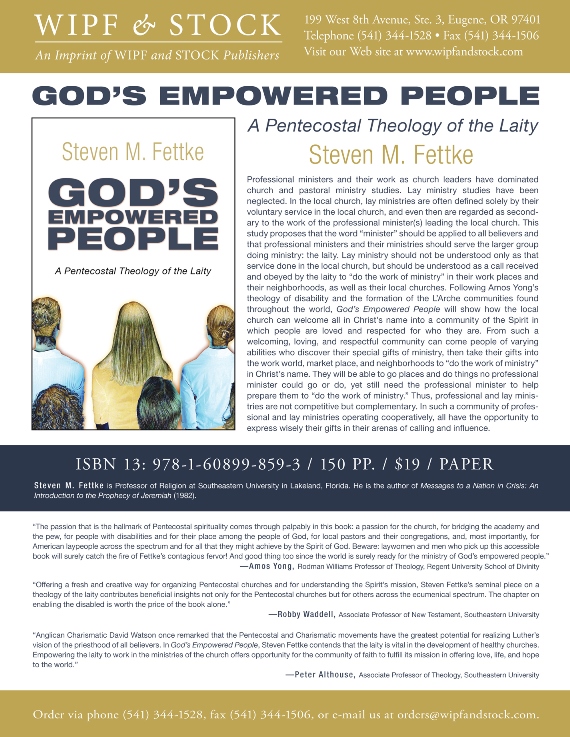Forming a Community of the Spirit: Hospitality, Fellowship, and Nurture, Part 2 of 2, by Steven M. Fettke
If handicapped people express love for you, then it comes from God. It’s not because you accomplished anything. These broken, wounded, and completely unpretentious people forced me to let go of my relevant self—the self that can do things, show things, prove things, build things—and forced me to reclaim that unadorned self in which I am completely vulnerable, open to receive and give love regardless of any accomplishments.45
When we have spent six days protecting ourselves from verbal and emotional assaults, it is hard on the seventh day to break with old habits and believe the promise of God’s nurture or make an attempt to lend another such promised nurture.
If there is anything in us, it is not our own; it is a gift of God. But if it is a gift of God, then it is entirely a debt one owes to love, that is, to the Law of Christ. And if it is a debt owed to love, then I must serve others with it, not myself. Thus my learning is not my own; it belongs to the unlearned and is the debt I owe them. My chastity is not my own; it belongs to those who commit sins of the flesh, and I am obligated to serve them through it by offering it to God for them by sustaining and [forgiving] them, and thus with my respectability, veiling their shame before God and [people] … Thus my wisdom belongs to the foolish, my power to the oppressed. Thus my wealth belongs to the poor, my righteousness to the sinners … It is with all these qualities that we must stand before God and intervene on behalf of those who do not have them, as though clothed with someone else’s garment … But even before [people] we must, with the same love, render them service against their detractors and those who are violent toward them; for this is what Christ did for us.46
There are no secret or mystical formulas by which a nurturing community might be formed. It will require humble people who truly value what a nurturing community can provide, and value it above all else. Such a loving, nurturing community should be the natural product of Spirit-enabled fellowship. If God’s love is really true, believers cannot help but convey that love in authentic, tangible ways. “There is no wavering in God’s intent to love us, no matter what … [and] when we love and live in a community where love counts, we are at once ourselves and like God.”47

People are practiced in guarding their hearts because life often breaks open hearts.
Category: Ministry, Spring 2012


